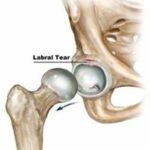What is an Antenatal Exercise

Experts agree, when you’re expecting, it’s important to keep moving. Pregnant women who exercise have less Back Pain, more energy, a better body image, and, post-delivery, a faster return to their pre-pregnancy shape.
Keep up your normal daily physical activity or exercise (sport, running, yoga, dancing, or even walking to the shops and back) for as long as you feel comfortable.
Exercise is not harmful to your baby. In fact, there is some evidence that active women are less likely to experience problems in later pregnancy and labor.
Antenatal Exercise tips for pregnancy!
Don’t exhaust yourself. You may need to slow down as your pregnancy progresses or if your maternity team advises you to. If in doubt, consult your maternity team. As a general rule, you should be able to hold a conversation as you exercise when pregnant. If you become breathless as you talk, then you’re probably exercising too strenuously.
If you weren’t active before you got pregnant, don’t suddenly take up strenuous exercise. If you start an Aerobic exercise program (such as running, swimming, cycling, walking or aerobics classes), tell the instructor that you’re pregnant and begin with no more than 15 minutes of continuous exercise, three times a week. Increase this gradually to at least four 30-minute sessions a week.
Exercise tips:
- Always warm-up before exercising, and cool down afterward;
- Try to keep active on a daily basis: half an hour of walking each day can be enough, but if you can’t manage that, any amount is better than nothing;
- Avoid any strenuous exercise in hot weather;
- Drink plenty of water and other fluids.
Exercises one should avoid in pregnancy?
- Don’t lie flat on your back, particularly after 16 weeks, because the weight of your bump presses on the main blood vessel bringing blood back to your heart and this can make you feel faint;
- Don’t take part in contact sports where there’s a risk of being hit, such as kickboxing, judo or squash;
- Don’t go scuba diving, because the baby has no protection against decompression sickness and gas embolism (gas bubbles in the bloodstream) ;
- Don’t exercise at heights over 2,500m above sea level until you have acclimatized: this is because you and your baby are at risk of altitude sickness.
Want to know more about what to do and what not in pregnancy? Call Us Now, Our Physiotherapists will help you with all such questions.





